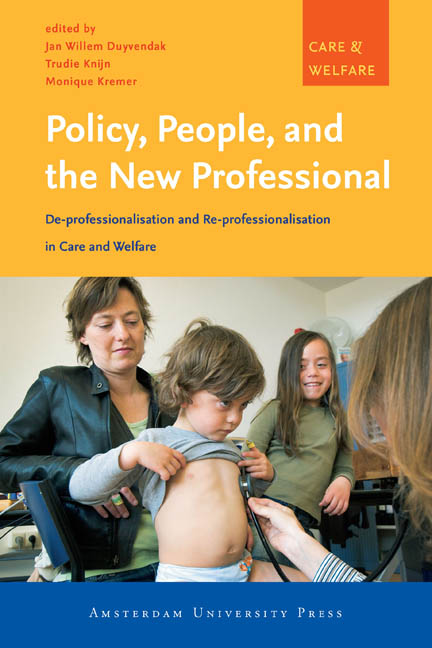 Policy, People, and the New Professional
Policy, People, and the New Professional 6 - Safe Neighbourhoods
Published online by Cambridge University Press: 23 January 2021
Summary
Picture this: An elderly police inspector who knows the tricks of his trade. Serial killers, ordinary murderers, drug dealers, rapists, and thieves will no longer walk free as long as he is around to catch them. Accompanied by one or two faithful assistants, he visits crime scenes, interviews witnesses, looks for clues, studies his files, and hunts down the villains until they are safely behind bars. That is, if it is up to him, but usually it isn’t. The elderly police inspector whom we know from so many police series on television is very often pestered by the high and mighty, often slightly corrupt politicians, by managers who have never caught a villain in their lives, and by lawyers who see to it that the police abide by all sorts of silly rules. The police inspector is drowned in paper work, has to meet arbitrary targets, has to account for his whereabouts, has to do public relations in the local community and even go to receptions to shake hands with politicians. This is the script of many episodes of many television police series. In this chapter, I intend to show that things are not as simple as that. In fact, I will argue that the politicians, lawyers and managers, and the values they represent can change the culture of professional policing for the better.
All across Europe, the flux of immigrants from developing and formerly colonised countries who are settling with their families in rich European countries, are triggering negative stereotypes in times of macro-mutations and uncertainty. International tensions in the Middle East, concerns about external and internal security, and the blurring of frontiers lead to easy dichotomies of ‘us’ and ‘them’ in democracies of opinion, influenced by the media.
In France, formerly thought to be a homogeneous society with now and then invisible flux immigrants irrupting and quietly melting in, the development of more individualistic and culturally diversified society has left national elites and professionals obviously confused, since equal treatment for all does not meet immigrants’ special needs. Because former mechanisms of social integration have been eroding throughout the second half of the 20th century and social exclusion has taken new ethnicised forms, current second- and third-generation males often have the feeling they are not fully accepted in the mainstream, and that their trajectories of upward social mobility look dimmer.
- Type
- Chapter
- Information
- Policy, People, and the New ProfessionalDe-professionalisation and Re-professionalisation in Care and Welfare, pp. 81 - 96Publisher: Amsterdam University PressPrint publication year: 2006
